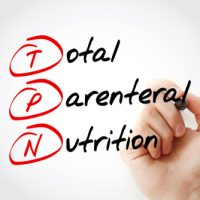 Total Parenteral Nutrition (TPN) is a method of providing vital nutrients directly into the bloodstream when the gastrointestinal tract is unable to absorb them. It is usually administered through a central venous catheter and is indicated for certain medical conditions and situations. However, there are also instances where TPN may not be advisable or may have contraindications due to potential risks or inefficacy. In this article, we will explore the indications and contraindications of TPN in detail.
Total Parenteral Nutrition (TPN) is a method of providing vital nutrients directly into the bloodstream when the gastrointestinal tract is unable to absorb them. It is usually administered through a central venous catheter and is indicated for certain medical conditions and situations. However, there are also instances where TPN may not be advisable or may have contraindications due to potential risks or inefficacy. In this article, we will explore the indications and contraindications of TPN in detail.
Indications for TPN:
1. Bowel Dysfunction: One of the primary indications for TPN is when there is impaired gastrointestinal function or complete bowel dysfunction. This may occur due to conditions such as bowel obstruction, short bowel syndrome, or severe inflammatory bowel disease. TPN allows patients to receive the necessary nutrients directly into their bloodstream, bypassing the gastrointestinal system.
2. Malnutrition: TPN is indicated for patients who are severely malnourished and unable to consume an adequate amount of nutrients orally or enterally. This may be due to conditions such as anorexia nervosa, cancer, or severe trauma. TPN provides a balanced composition of carbohydrates, proteins, fats, vitamins, and minerals, ensuring that the patient’s nutritional needs are met.
3. Inability to Digest or Absorb Nutrients: Some individuals may have intrinsic difficulties in digesting or absorbing nutrients from food or enteral feeds. This can occur in conditions like severe pancreatitis, severe malabsorption syndromes, or short bowel syndrome. In such cases, TPN can serve as a temporary or long-term solution by providing easily absorbable nutrients directly into the bloodstream.
4. Hypermetabolic States: TPN is indicated for patients with hypermetabolic states, where the body’s energy requirements are significantly increased. This can happen in patients with severe burns, sepsis, or major surgery. The administration of TPN helps meet the increased energy demands while also preventing further weight loss and supporting tissue healing and recovery.
Contraindications for TPN:
1. Intact Gastrointestinal Function: If the patient’s gastrointestinal tract is functioning adequately, TPN is generally not advised. In such cases, enteral feeding, which utilizes the normal digestive process, is preferred as it carries fewer risks and complications compared to TPN. Enteral feeding can be achieved through oral intake, nasogastric, or gastrostomy tubes.
2. Stable Oral or Enteral Intake: If the patient’s oral or enteral intake is adequate, TPN may not be necessary. Oral or enteral feeding is generally preferred as it maintains normal gastrointestinal function, preserves the gut flora, and helps prevent complications associated with TPN, such as liver dysfunction or catheter-related infections.
3. Short-Term Nutritional Support: TPN is not typically recommended for short-term nutritional support, especially in patients who are expected to resume normal oral or enteral intake within a few days. Enteral feeding, which carries fewer risks and is more natural for the body, is the preferred method for temporary nutritional support.
4. Lack of Vascular Access: TPN requires a central venous catheter to deliver the nutrients directly into the bloodstream. If the patient has limited vascular access or an increased risk of complications related to a central line insertion, TPN may not be advised. In such cases, alternative methods of nutritional support should be explored, such as enteral feeding or peripheral parenteral nutrition.
Summary
Total Parenteral Nutrition (TPN) is a valuable and sometimes life-saving intervention for individuals who are unable to consume or absorb nutrients through the gastrointestinal tract. It is indicated for patients with bowel dysfunction, malnutrition, inability to digest or absorb nutrients, and hypermetabolic states. However, TPN should be avoided if the patient’s gastrointestinal function is intact, stable oral or enteral intake is possible, short-term nutritional support is required, or there are limitations in vascular access. As with any medical intervention, the decision to initiate TPN should be carefully evaluated, considering the individual patient’s needs, potential risks, and the likelihood of anticipated benefits.
Need Naturopath in Whittier, CA?
Since 1985, Chemique Pharmaceuticals, Inc. has been a recognized leader in the infusion pharmacy industry based in Wittier, California. Our therapies include compounded solutions for parenteral antibiotics, chemotherapy, pain medications, total Parenteral Nutrition (T.P.N), and other drugs. Some of our services include antibiotic therapies, hydration therapies, hormone replacement therapies, continuous or cyclical Total Parental Nutritional IV support, and more. At Chemique Pharmaceuticals, Inc. we are dedicated to having you feel your best. Call us today for more information!

